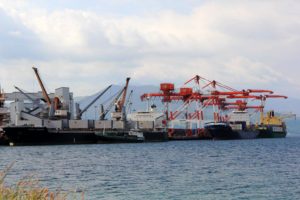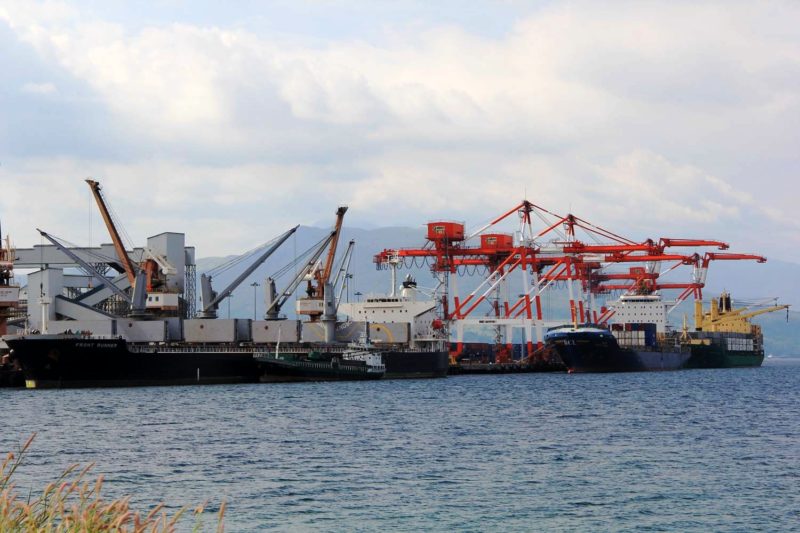 The Inter-agency Task Force for the Management of Emerging Infectious Disease (IATF) has approved the Department of Transportation (IATF) proposal to dedicate Subic and other ports as hubs for international crew change.
The Inter-agency Task Force for the Management of Emerging Infectious Disease (IATF) has approved the Department of Transportation (IATF) proposal to dedicate Subic and other ports as hubs for international crew change.
Under Resolution No. 53 signed on July 9, IATF also approved DOTr’s proposal to establish one-stop shops for uniform processing of arrivals in all gateways, and to hire more civilians to serve as additional personnel for contact tracing and swabbing at ports of entry.
In addition, IATF adopted the inbound flight crew protocols mandated by the International Civil Aviation Organization (ICAO) for inbound flight crew change.
DOTr, including attached agencies Civil Aeronautics Board (CAB) and Civil Aviation Authority of the Philippines (CAAP), were directed to issue guidelines specifying that inbound flight crew must remain in their accommodation establishments upon arrival to avoid transmission of the coronavirus disease (COVID-19).
Transport Secretary Arthur Tugade, in an online meeting with International Maritime Organization (IMO) secretary general Kitack Lim on July 7, said preparations are underway to make the Philippines an international hub for crew change and other international maritime activities.
In a separate statement on July 9 after a virtual ministerial summit, IMO said 13 countries have committed to facilitate crew changes and achieve key worker designation for seafarers.
IMO noted this “represents significant progress to help resolve a growing crisis facing the maritime industry, and enable hundreds of thousands of stranded seafarers to go home or join ships.”
These countries are Denmark, France, Germany, Greece, Indonesia, Netherlands, Norway, Philippines, Saudi Arabia, Singapore, United Arab Emirates, United Kingdom, and United States.
In a joint statement, representatives from 13 countries expressed their deep concern about stranded seafarers and acknowledged “the inability of ship operators worldwide to conduct ship’s crew changes is the single most pressing maritime operational challenge to the safe and efficient movement of global trade.”
Since the beginning of the COVID-19 pandemic, travel restrictions and border closures imposed by governments around the world have caused significant hurdles to crew changes and left hundreds of thousands of seafarers stranded onboard ships, or unable to join ships.
It is currently estimated that at least 200,000 seafarers worldwide are stranded on ships and require immediate repatriation, and a similar number urgently need to join ships to replace them. IMO said this has led to a growing humanitarian crisis, in addition to concerns that seafarer fatigue and mental health issues may lead to serious maritime accidents. It added that there are also concerns about the continuity of the global supply chain.
The countries in the joint statement pledged to designate seafarers as key workers and to implement the Protocols for Ensuring Safe Ship Crew Changes and Travel during the Coronavirus Pandemic, which were endorsed and circulated by IMO in May.
The joint statement also recognizes the importance of considering the possibility of waivers or exemptions from visa or documentary requirements for seafarers, and to help increase access to commercial flights to and from the principal countries of origin of seafarers.
The ICAO, meanwhile, recently adopted a new report and recommendations aimed at restarting the international air transport system and aligning its global recovery.
The COVID-19 report and guidelines were produced by the Council’s Aviation Recovery Task Force (CART) and developed through broad-based consultations with countries and regional organizations, and with advice from the World Health Organization and key aviation industry groups including the International Air Transport Association, Airports Council International, Civil Air Navigation Services Organisation, and International Coordinating Council of Aerospace Industries Associations.
The report also contains the “Take-off: Guidance for Air Travel through the COVID-19 Public Health Crisis” document which contains guidelines for public health risk mitigation measures and four separate modules relating to airports, aircraft, crew, and air cargo.





